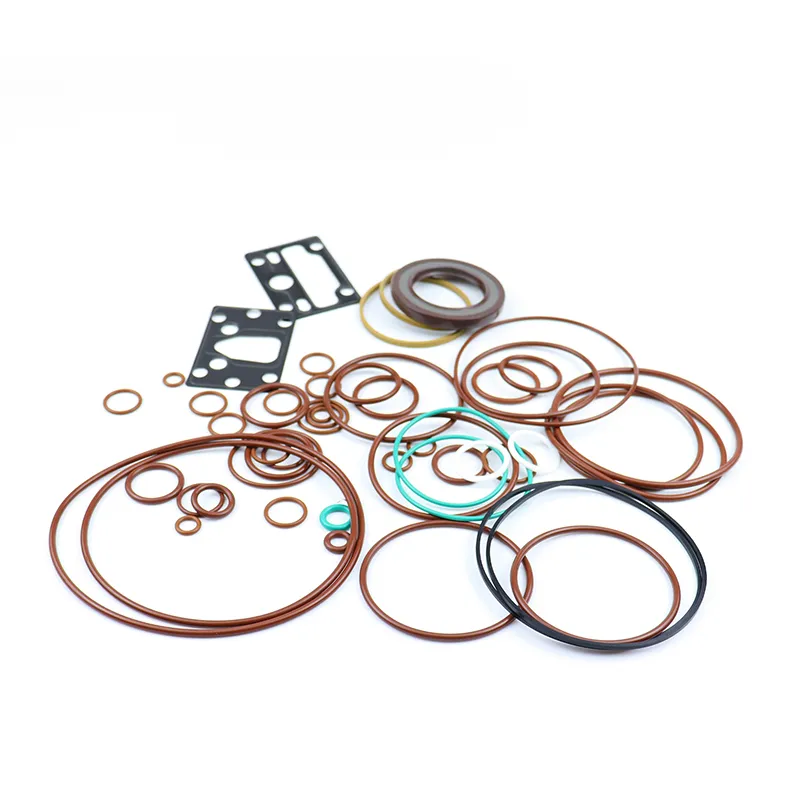Νοέ . 01, 2024 04:37 Back to list
Understanding the Function and Importance of Rotary Oil Seals in Machinery Applications
The Importance of Rotary Oil Seals in Modern Machinery
Rotary oil seals, also known as rotary shaft seals or oil shaft seals, play a crucial role in various mechanical systems by preventing the leakage of lubricants and contaminants. These seals are essential components in many applications, including automotive, industrial machinery, and household appliances. Understanding their function and significance is vital for the efficient operation and longevity of machinery.
Rotary oil seals are designed to fit around rotating shafts, providing a barrier that keeps oil or other fluids contained while preventing dirt and debris from entering the system. They typically consist of a flexible elastomeric material, a metal case, and sometimes a spring that helps maintain a tight seal against the shaft. This construction allows them to accommodate slight misalignments and variations in the shaft's surface while ensuring a reliable seal under varying operational conditions.
One of the primary functions of rotary oil seals is to maintain lubrication within rotating equipment. Proper lubrication is essential for reducing friction between moving parts, minimizing wear, and enhancing the overall efficiency of the machinery. In the automotive sector, for example, rotary oil seals are used in engines, transmissions, and differentials to retain engine oil and prevent leaks. A well-functioning oil seal not only protects the internal components from contaminants but also ensures that the lubrication remains intact, thereby extending the life of the vehicle.
rotary oil seals

In industrial applications, rotary oil seals help maintain the integrity of hydraulic systems, pumps, and various rotating equipment. High-performance seals are often required in these environments to withstand extreme temperatures, pressures, and the presence of aggressive chemicals. The choice of material and design is critical to ensure that the seal can handle the specific conditions of the application. For instance, seals made from fluoroelastomer may be used in harsh chemical environments, while nitrile rubber seals are more common for general oil sealing applications.
The installation and maintenance of rotary oil seals are also significant factors in their effectiveness. Incorrect installation can lead to premature failure, resulting in oil leaks and costly downtime. Therefore, it is essential for technicians to follow manufacturer guidelines closely and ensure that the sealing surfaces are clean and free from damage before fitting a new seal. Regular inspections can also help identify wear and tear, allowing for timely replacements before major failures occur.
Furthermore, advancements in technology have led to the development of specialized rotary oil seals that offer enhanced performance. Innovations such as improved materials, better designs, and customizable options allow engineers to select seals that meet specific application requirements, thereby increasing overall reliability and efficiency.
In conclusion, rotary oil seals are vital components in a wide range of machines, ensuring the proper functioning of mechanical systems by preventing fluid leaks and contamination. Their design, material selection, and proper installation are critical to their performance. As technology continues to evolve, the role of rotary oil seals in enhancing machinery efficiency and reliability will only become more pronounced, underscoring their importance in modern engineering.
-
Unlocking the Potential of Hydraulic Systems with Essential Sealing Solutions
NewsAug.06,2025
-
Unleash the Power of Your Hydraulic Systems with Our Premium Seal Kits
NewsAug.06,2025
-
Specialized Hydraulic Seal Kits for Breakers, Pistons, and Presses
NewsAug.06,2025
-
Revitalize Hydraulic Systems with Premium Repair and Seal Kits
NewsAug.06,2025
-
Fortify Your Cylinders with Premium Sealing Solutions
NewsAug.06,2025
-
Elevate Hydraulic System Reliability with Specialized Seal Kits
NewsAug.06,2025
-
TCN Oil Seal Metal Ring Reinforcement for Heavy Machinery
NewsJul.25,2025
Products categories
















